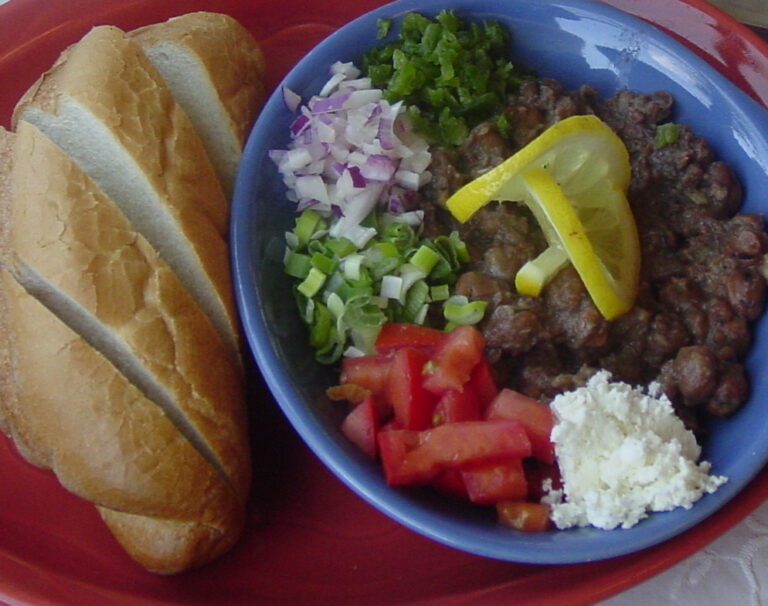Introduction: Sudanese cuisine and culture
Sudanese cuisine is a blend of African, Arab, and Mediterranean influences. Its rich flavors, fragrant spices, and diverse ingredients are a reflection of the country’s cultural diversity and history. Sudanese food is often characterized by its use of grains, legumes, vegetables, and meats. The most common dishes include stews, soups, and grilled or fried meats.
Food is an integral part of Sudanese culture and is often shared with family and friends during celebrations and gatherings. Sudanese cuisine has a significant role in the country’s festive traditions, and specific dishes are associated with various holidays and celebrations.
Celebrations in Sudan: Overview
Sudanese people celebrate several holidays throughout the year, including Islamic, Christian, and traditional festivals. The most significant Islamic celebrations in Sudan are Eid al-Fitr and Eid al-Adha, which mark the end of Ramadan and the annual pilgrimage to Mecca respectively. Christian holidays such as Christmas and Easter are also celebrated by the Christian minority in Sudan. Additionally, traditional festivals such as the Holi festival of colors are popular among the Hindu community.
Traditional dishes for Eid al-Fitr
Eid al-Fitr is a three-day celebration that marks the end of Ramadan, the holy month of fasting. Sudanese people break their fast with a large feast and prepare sweet dishes to share with family and friends. One of the most popular dishes served during Eid al-Fitr is Fatta, which consists of a layer of bread, followed by a layer of meat or chicken, and then a layer of rice. It is served with a tomato-based sauce and topped with fried onions.
Another traditional dish for Eid al-Fitr is Bamia, which is a stew made with okra, meat, and tomato sauce. Sudanese people also prepare a variety of sweets during this holiday, such as Baklava, a pastry filled with nuts and honey syrup, and Qatayef, a sweet dumpling filled with cream or cheese.
Culinary traditions for Eid al-Adha
Eid al-Adha is a four-day celebration that commemorates the willingness of Prophet Ibrahim to sacrifice his son as an act of obedience to Allah. During this holiday, Muslims all over the world sacrifice an animal and share the meat with family, friends, and the poor.
In Sudan, the most popular dish for Eid al-Adha is the Dukhan, which is a stew made with lamb or beef meat and a special spice blend. It is served with bread or rice and is a staple dish during the holiday. Sudanese people also prepare a variety of desserts and sweets during Eid al-Adha, such as Halawa, a sweet made with sesame seeds and honey, and Gurrasa, a fried dough ball flavored with cardamom and cinnamon.
Sweets and desserts for Ramadan
Ramadan is a month of fasting and spiritual reflection for Muslims all over the world. Sudanese people fast from dawn to dusk and break their fast with a meal called Iftar. During Ramadan, Sudanese people prepare a variety of sweets and desserts to share with family and friends.
One of the most popular desserts during Ramadan is the Tamriyah, which is a sweet made with dates and butter. Sudanese people also prepare Gereesh, a traditional dish made with wheat, milk, and sugar, and Halawet El-Jibn, a sweet made with cheese, semolina, and sugar syrup.
Other Sudanese holidays and their food traditions
Sudanese people celebrate several other traditional holidays, including Independence Day, Revolution Day, and the Holi festival of colors. During Independence Day, Sudanese people prepare a variety of traditional dishes such as Kebab and Shaiyah, a spicy dish made with meat and peanut butter.
Revolution Day is a relatively new holiday in Sudan, celebrated on December 19th, to commemorate the peaceful revolution that ousted former President Omar al-Bashir in 2019. Sudanese people celebrate this holiday by preparing traditional dishes such as Asida, a porridge made with flour and water, and Fasolia, a stew made with red kidney beans.
In conclusion, Sudanese cuisine and culture are intertwined, and food plays a significant role in the country’s festive traditions. Specific dishes are associated with various holidays and celebrations, and Sudanese people prepare and share them with family and friends.

